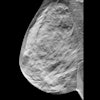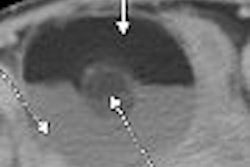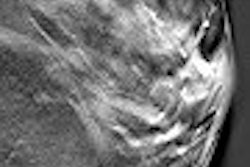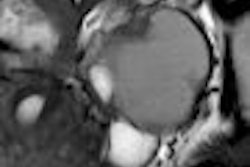
In an AuntMinnie.com article last week, proponents of digital breast tomosynthesis (DBT) championed the modality as the great hope for rescuing the beleaguered field of breast cancer screening. Dr. Eric Milne, professor emeritus of radiology and medicine at the University of California, Irvine, begs to differ in this editorial.
Changing a long-held medical dogma is always extraordinarily difficult. The belief that pure morphological imaging of the breast can detect cancer, and differentiate it from benign tissue, is very deeply ingrained.
But it should be self-evident that pure morphologic imaging -- no matter how high the in vivo resolution achieved -- cannot do this. Even when the lesion is removed, sectioned, and magnified some 350 times, the pathologist cannot rely on this exquisitely resolved morphologic data alone to make a diagnosis, but must use stains and/or histological chemistry. Even these approaches result in a fair proportion of errors.
From this it should be evident that, like full-field digital mammography (FFDM), DBT, relying purely on morphologic data, cannot solve the diagnostic problems of breast cancer. Despite its decreased spatial resolution, DBT will almost certainly show most breast lesions more clearly (except for microcalcifications) and increase sensitivity somewhat, but it will do so at the expense of specificity. As a result, the already disgracefully high percentage of negative biopsies performed in the U.S. will continue to rise (Journal of Medical Screening, 2005, Vol. 12:1, pp. 50-54).
I have always been struck by the repeated claims implicitly believed by women in general that mammographic screening has a sensitivity in the 90% to 95% range. Yet close to 40% of the patients screened have dense breasts, in which the sensitivity is around 30% (Diagnosis of Diseases of the Breast, ElsevierScience, St. Louis, 2005, p. 132; Annals of Internal Medicine, February 2003, Vol. 138: 3, pp. 168-175).
Then how is it possible therefore to have an overall 95% screening sensitivity? The answer is that a very large number of screening cases are called BI-RADS 0, requiring further imaging, and that the detection of a cancer is then made by ultrasound or MRI, but the "credit" for finding the cancer is attributed to mammography!
It is popular to state that the present radiological disenchantment with mammography is due primarily to litigation and poor compensation (while mammographers' salaries verge on the half million or more mark!). I would submit that the principle cause of young radiologists' disenchantment with mammography is the daily frustration of using a technique which, no matter how skilled you are, only rarely makes a specific diagnosis. In fact, mammography is simply a triage tool of poor quality (60% to 80% of biopsies performed in the U.S. produce negative results) to decide whether to biopsy or not.
The future of breast cancer diagnosis lies in imaging function, not morphology, so, although DBT may have screening "in its crosshairs," it is highly unlikely that it will hit the target.
By Dr. Eric N. C. Milne
AuntMinnie.com contributing writer
June 26, 2007
Dr. Eric Milne is professor emeritus of radiology and medicine at the University of California, Irvine. He is also the director of clinical research for CT laser mammography developer Imaging Diagnostic Systems in Plantation, FL.
The opinions expressed in guest editorials are those of the author, and do not necessarily reflect the views of AuntMinnie.com.
Related Reading
Mammography pays well despite reputation, SalaryScan survey says, May 10, 2007
Breast imaging expert: ACP mammo screening policy teeming with misinformation, April 5, 2007
Tailored approach best for breast cancer screening of women in their 40s, April 3, 2007
Copyright © 2007 AuntMinnie.com



















